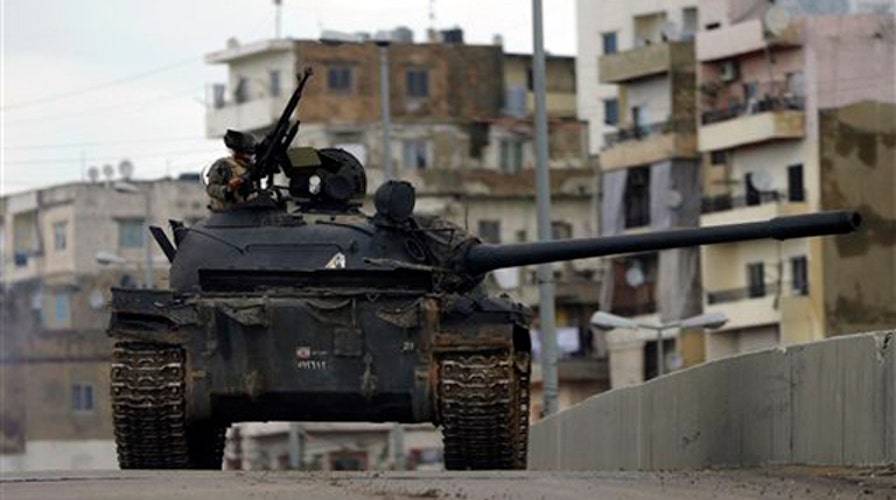A U.S. congressman is complaining that the Pentagon has ignored his inquiries into whether the U.S. is helping facilitate the movement of arms from Libya to the Syrian opposition.
"If it is true, it's disturbing. The U.S. doesn't have a good record of arming so-called rebel groups and in some cases those weapons have been used against us and our allies," said Rep. Ted Poe, R-Texas, a member of the House Foreign Affairs Committee.
Poe has posed the question twice to Defense Secretary Leon Panetta. The inquiries from Poe and others on Capitol Hill come amid claims that weapons are at least traveling from Libya to Syria. Sources told Fox News last week that the movement of arms from Libya to support Syrian fighters is well-known in Benghazi and began almost immediately after the fall of Muammar Qaddafi.
Following a report in Britain's Sunday Times that the Obama administration was facilitating that movement, State Department spokeswoman Victoria Nuland flatly denied the charge.
"It was a false report," she said. Nuland later added: "We are providing nonlethal assistance. Other countries are making other choices. ... We have not changed our policy."
So far, however, Panetta has not responded to the letters sent by Poe, the first of which was sent Oct. 31.
The letters pose a number of questions about whether the U.S. was facilitating movement of weapons from Libya to Syria as some reports have suggested.
"It has been blissful silence" said Poe, who added "so far the administration hasn't given the answer, but we will eventually get it."
A Pentagon spokesman confirmed to Fox News that they received the request from Poe and "are reviewing it."
"We have seen the press reports, we will not comment on intelligence matters," spokesman Wesley P. Miller IV said.
Meanwhile, Fox News is learning more about the arms movement from sources on the ground in Benghazi. A shipper who has just returned from dropping a load of arms in Syria said that the U.S. knows shoulder-fired missiles are the most important weapons for anti-Assad forces and that he has even shipped some hand-launched drones which can be used for surveillance purposes as part of the arms movement.
Sources continue to say that the U.S. has been privy at the very least to this arms movement, with some insisting that the U.S. was doing more but has "found ways to parse words."
One concern shared not only by Poe but multiple sources on the ground in Benghazi is where the weapons are ending up. The shipper says that right now there are at least 18 different opposition groups in Syria fighting Assad, and at the same time fighting each other for control if Assad falls.
"The Islamists are getting stronger in Syria and nobody wants to help them. The Qataris and others want to help the opposition, but these countries are generous, they are not stupid -- they want to make sure the weapons get into the right hands," he said, adding: "The U.S. is allowing things to move, but not enough to make a difference. They are providing enough to do something, but not enough to make something happen."
There are also questions about the initial weapons movement operation, also reported by the New York Times, which tied Qatar and the United Arab Emirates to arms shipments into Libya during the civil war to overthrow Muammar Qaddafi. Sources in Benghazi say while more American companies have shown interest in returning to Benghazi and eastern Libya for oil operations, there are still concerns of where these weapons ended up and who ended up with them.
"There really is no way of knowing. It's the nature of all these support tasks, the end user is never quite known," one source said. He also said that while the initial attack on the U.S. Consulate on Sept. 11 was "obviously professional," it is entirely possible that the mob that showed up and ransacked the compound could have been at least partly armed with weapons the U.S. allowed to move into the country to support Qaddafi opposition.
The actual volume of weapons moving and their ultimate destination continues to be unclear. Sources say it is "loosely controlled" and no matter how hard the organizers try, there is no perfect "formal government auditing process."





